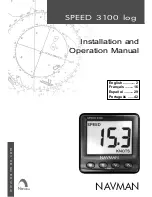
GE
D
IRECTION
FQ091019, R
EVISION
2
V
IVID Q
N S
ERVICE
M
ANUAL
Chapter 1 - Introduction
1-23
Section 1-8
Returning/Shipping Probes and Repair Parts
Equipment being returned must be clean and free of blood and other infectious substances.
GE Healtcare policy states that body fluids must be properly removed from any part or equipment prior
to shipment. GE Healtcare employees, as well as customers, are responsible for ensuring that parts/
equipment have been properly decontaminated prior to shipment. Under no circumstance should a part
or equipment with visible body fluids be taken or shipped from a clinic or site (for example, body coils
or an ultrasound probe).
The purpose of the regulation is to protect employees in the transportation industry, as well as the
people who will receive or open this package.
NOTE:
The US Department of Transportation (DOT) has ruled that “items that were saturated and/or
dripping with human blood that are now caked with dried blood; or which were used or intended
for use in patient care” are “regulated medical waste” for transportation purposes and must be
transported as a hazardous material.
NOTE:
The USER/SERVICE staff should dispose of all the waste properly, per federal, state, and local
waste disposal regulations.
The Ultrasound system is not meant to be used for long-term storage of patient data or images. The
user is responsible for the data on the system and a regular backup is highly recommended.
If the system is sent for repair, please ensure that any patient information is backed up and erased from
the system before shipping. It is always possible during system failure and repair to lose patient data.
GE is not responsible for the loss of this data.
If PHI (Patient Healthcare Information) data needs to be sent to GE employees for service purposes,
GE will ascertain agreement from the customer. Patient information shall only be transferred by
approved service processes, tools and devices restricting access, protecting or encrypting data where
required, and providing traceability in the form of paper or electronic documents at each stage of the
procedure while maintaining compliance with cross-border restrictions of patient information transfers.
















































